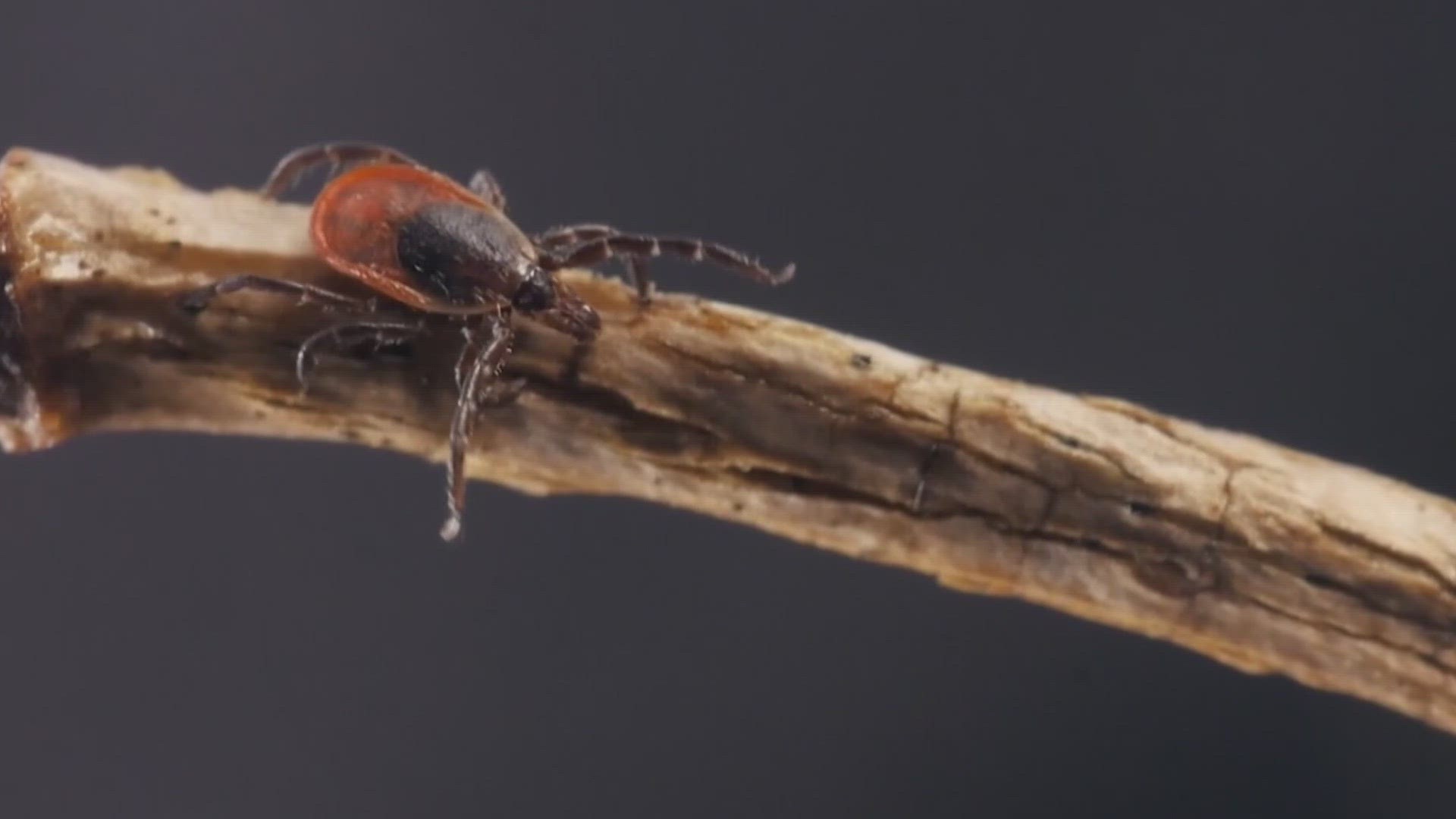MAINE, Maine — As more people head outdoors to take in the fall colors, a word of caution about ticks carrying diseases.
This summer's young deer ticks are turning into adults this fall, with their numbers expected to peak in October.
So far this year, the Maine Center for Disease Control and Prevention is reporting 2,147 cases of Lyme disease, which is way short of last year's record number of more than 2,600 cases. Experts say up to 40 percent of those ticks can transmit Lyme and other tick-borne illnesses.
"By the end of September, we will start seeing those adult deer ticks picking up in numbers and their activity," Griffin Dill, the manager of the Tick Lab at the University of Maine, explained.
Dill said ticks will be busy looking for a final host for the season. Their favorite habitat is to quest in low-lying vegetation and leaf litter. That activity only slows down when temperatures drop below freezing for an extended time. But tick season is a year-round problem with warming winters because of climate change. The tick lab, which identifies ticks free of charge and tests tick samples for a small fee, has received more than 900 tiny ticks, known as nymphs, this year. That's more than the 300 sent in last year.
"A little concerning for sure. Those nymphs will be this fall's adults, so there is potential again for high tick activity," Dill added.
This is the first year the lab has tested for the Powassan virus, which is carried by deer ticks. It is scarce and can cause severe neurological problems such as brain or spinal cord swelling, and there is no treatment. The virus has only been found in about half a dozen tick samples sent into the UMaine Tick Lab.
According to the U.S. Centers for Disease Control and Prevention, there have been four cases in Maine this year, and the first and only fatal case was Bobby Weymouth, who died May 14 after exposure to the virus. His wife of 23 years, Annemarie, has been speaking out since he died. There is rare awareness, especially among health care providers, to look for early signs.
"Hand weakness, paralysis, confusion -- why does this person have this problem? They live in Maine. It could be from a tick bite. Do the blood test so they can rule that out," Annemarie declared.
Bobby was a race car enthusiast who raced at tracks throughout the country. He also mentored young racers.
Annemarie donated one of his race cars to the New England Racing Museum of Racing in Louden, New Hampshire. The car's display will also be tied to Powassan virus awareness.
Experts say always do tick checks on you and your pets, wear protective clothing, and use an EPA-registered repellant outdoors.

